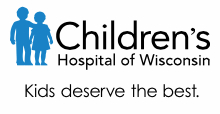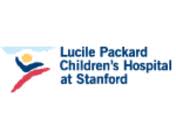Phase 1 Pediatric Pharmacokinetics/Pharmacodynamics (PK/PD) Study
| Status: | Recruiting |
|---|---|
| Conditions: | Cardiology, Cardiology, Cardiology |
| Therapuetic Areas: | Cardiology / Vascular Diseases |
| Healthy: | No |
| Age Range: | Any - 18 |
| Updated: | 2/20/2019 |
| Start Date: | April 13, 2016 |
| End Date: | December 31, 2019 |
A Phase 1, Open-Label, Single-Dose, Non-Randomized Study to Evaluate Pharmacokinetics and Pharmacodynamics of Edoxaban in Pediatric Patients
This is the first evaluation of edoxaban in pediatric subjects. In this Phase 1 study, a
single dose of edoxaban will be given to pediatric subjects who require anticoagulant therapy
to see what the body does to the drug (pharmacokinetics) and what the drug does to the body
(pharmacodynamics), and to compare if these effects are similar to those observed in adults.
single dose of edoxaban will be given to pediatric subjects who require anticoagulant therapy
to see what the body does to the drug (pharmacokinetics) and what the drug does to the body
(pharmacodynamics), and to compare if these effects are similar to those observed in adults.
Phase 1, open-label, multiple-center study in pediatric patients from 0 to < 18 years of age.
Patients will receive a single dose of edoxaban to match either the 30 mg (low dose) or the
60 mg (high dose) exposure in adults. Exact doses will be selected during the study on the
basis of PK modeling of emerging data. If unanticipated exposures are observed, the target
doses may be modified to best match expected exposure response relationships observed in
adults.
Enrollment in the study will start with the low dose, highest age group (adolescents) and
will continue from low to high dose in each age group and from higher to lower age groups.
Enrollment in the next dose/age cohort will begin after 50% of the subjects have completed
the previous dose/age cohort.
Age cohorts and dose groups: (6 participants each in low and high dose groups, for a total of
12 participants per age cohort)
- 12 to < 18 years of age
- 6 to <12 years of age
- 2 to <6 years of age
- 6 months to <2 years of age
- 0 to <6 months of age
Patients will receive a single dose of edoxaban to match either the 30 mg (low dose) or the
60 mg (high dose) exposure in adults. Exact doses will be selected during the study on the
basis of PK modeling of emerging data. If unanticipated exposures are observed, the target
doses may be modified to best match expected exposure response relationships observed in
adults.
Enrollment in the study will start with the low dose, highest age group (adolescents) and
will continue from low to high dose in each age group and from higher to lower age groups.
Enrollment in the next dose/age cohort will begin after 50% of the subjects have completed
the previous dose/age cohort.
Age cohorts and dose groups: (6 participants each in low and high dose groups, for a total of
12 participants per age cohort)
- 12 to < 18 years of age
- 6 to <12 years of age
- 2 to <6 years of age
- 6 months to <2 years of age
- 0 to <6 months of age
Inclusion Criteria:
- Is a pediatric subject requiring anticoagulant therapy
- Will abstain from the use of nonsteroidal anti-inflammatory drugs (such as ibuprofen),
and other antiplatelet and anticoagulant agents (except for aspirin) from 24 hours
prior to edoxaban dose until after the last PK sample is collected
- Will follow food and concomitant medication restrictions
Exclusion Criteria:
- Any major or clinically relevant unexplained bleeding during prior anticoagulant
therapy
- History of abnormal bleeding or coagulation within last 6 months prior to study drug
administration
- Renal function with glomerular filtration rate (GFR) less than 50% of normal for age
and size
- Malabsorption disorders (e.g., cystic fibrosis or short bowel syndrome)
- Hepatic disease associated with coagulopathy leading to a clinically relevant bleeding
risk, alanine transaminase (ALT) > 5 times the upper limit of normal (ULN) or total
bilirubin > 2 times the ULN with direct bilirubin > 20% of the total
We found this trial at
15
sites
9000 W Wisconsin Ave #270
Milwaukee, Wisconsin 53226
Milwaukee, Wisconsin 53226
(414) 266-2000

Phone: 414-266-1777
Children's Hospital of Wisconsin Nothing matters more than our children. At Children's Hospital of Wisconsin,...
Click here to add this to my saved trials
807 Childrens Way
Jacksonville, Florida 32207
Jacksonville, Florida 32207
(904) 697-3600

Phone: 904-697-3789
Nemours Children's Clinic At Nemours Children’s Clinic, Jacksonville, we've treated every child as we would...
Click here to add this to my saved trials
262 Danny Thomas Pl
Memphis, Tennessee 38105
Memphis, Tennessee 38105
(901) 495-3300

Phone: 901-595-4753
St. Jude Children's Research Hospital St. Jude is unlike any other pediatric treatment and research...
Click here to add this to my saved trials
South 34th Street
Philadelphia, Pennsylvania 19104
Philadelphia, Pennsylvania 19104
215-590-1000

Phone: 215-590-4040
Children's Hospital of Philadelphia Since its start in 1855 as the nation's first hospital devoted...
Click here to add this to my saved trials
Click here to add this to my saved trials
225 E Chicago Ave
Chicago, Illinois 60611
Chicago, Illinois 60611
(312) 227-4000

Phone: 312-227-1549
Ann & Robert H. Lurie Children's Hospital of Chicago Ann & Robert H. Lurie Children
Click here to add this to my saved trials
Cleveland, Ohio 44115
Phone: 216-844-7700
Click here to add this to my saved trials
Click here to add this to my saved trials
Click here to add this to my saved trials
Click here to add this to my saved trials
Click here to add this to my saved trials
Click here to add this to my saved trials
210 East Gray Street
Louisville, Kentucky 40202
Louisville, Kentucky 40202
Phone: 502-629-5830
Click here to add this to my saved trials
725 Welch Rd
Palo Alto, California 94304
Palo Alto, California 94304
(650) 497-8000

Phone: 650-497-8953
Lucile Packard Children's Hospital Stanford University Stanford Children's Health is the only network in the...
Click here to add this to my saved trials
Click here to add this to my saved trials